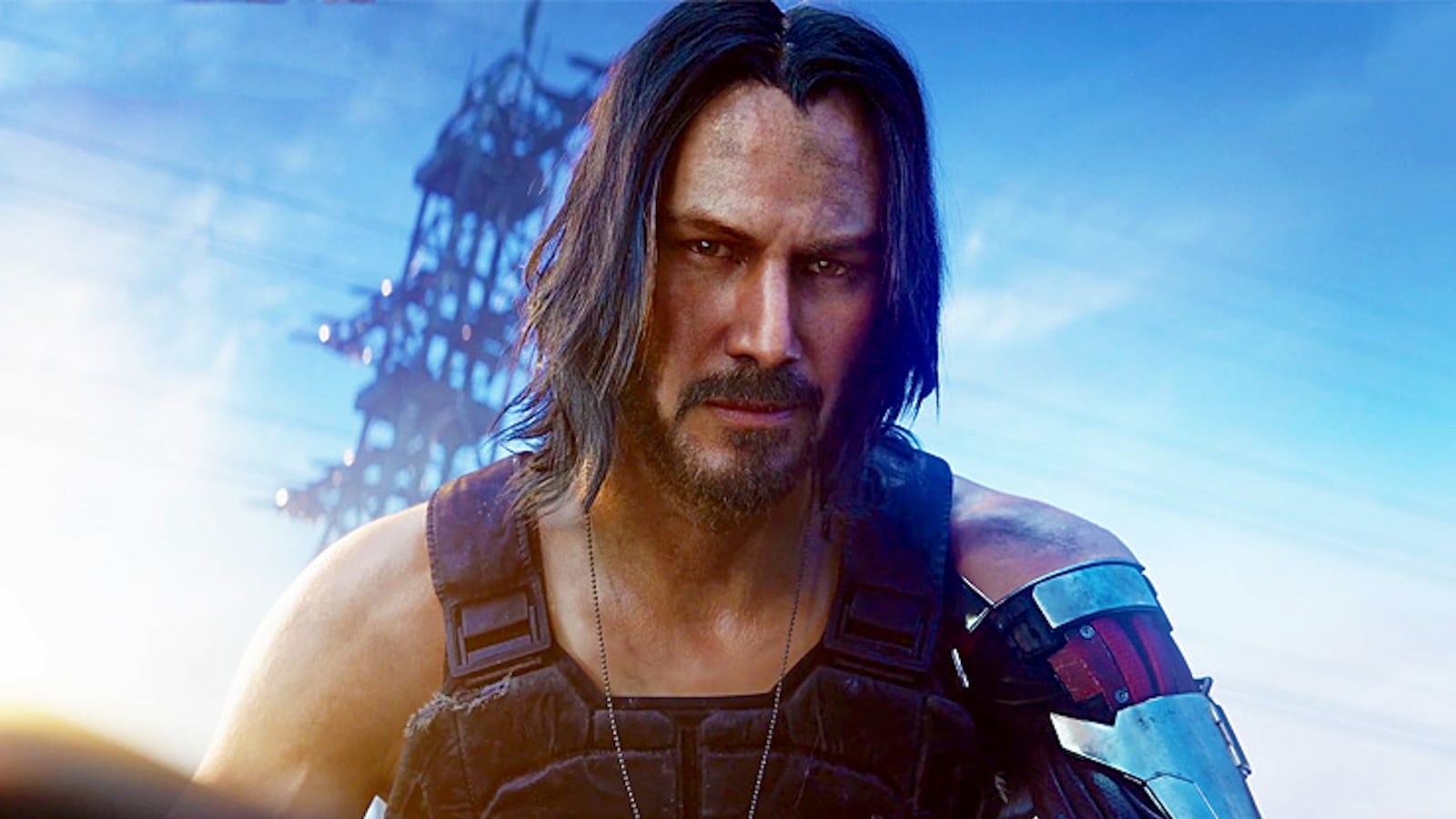It’s amazing how reports of a company forcing its employees to work overtime for months or even years in order to meet an arbitrary deadline can dampen your enthusiasm for a video game.
This phenomena is so common in game development that it has its own cute little euphemism: “Crunch.” And many of the most high-profile studios employ it: Rockstar Games, creators of the blockbuster Grand Theft Auto and Red Dead Redemption franchises, is notorious for its use, and the technical marvel of The Last of Us Part II came in part from overwork that reportedly resulted in at least one hospitalization.
And up there with them is Polish developer CD Projekt RED, a company that has been requiring six-day weeks for its workers in order to make a 2020 release for their hugely anticipated new title, Cyberpunk 2077. But despite all the hard work that those employees put in, it’s just not ready.
Given the hype surrounding the company, it’s a little surprising that it mostly stems from a single release: 2015’s The Witcher 3: Wild Hunt. While the first two games in the series were well received, the third became an absolute phenomenon, making its creators among the most respected devs in the industry and the source material popular enough to warrant an eminently watchable Netflix series starring Henry Cavill. The Witcher 3 and its myriad re-releases have been held up against Bethesda’s Elder Scrolls, and CDPR’s superior technology and storytelling chops are often cited as an example of how Bethesda could be rather than what they are. Which is why it’s ironic that no Bethesda game has ever been nearly as unstable at launch as Cyberpunk 2077.
The game is inspired by the pen-and-paper RPG series Cyberpunk, which is inspired by the likes of Blade Runner, Neuromancer, etc. It is meant to be a hundreds-of-hours-long adventure that you play through multiple times to see all there is to see in all the different ways they can be seen. You are V—and you are in trouble. When a job infiltrating the biggest corporation in Night City and possibly the entire world goes wrong, your brain begins to meld with that of an anti-capitalist Rockstar/”terrorist” named Johnny Silverhand, played here by the always-game Keanu Reeves. And this process is potentially lethal, so you must figure out how to stop it—and perhaps the corporation that caused it in the process.
Though it doesn’t look like one, Cyberpunk is a role-playing game first, and so I wanted to play a role… but the game makes it harder than you’d expect. For one thing: you can’t be “cool,” which is odd for a game that’s so obsessed with looking that. But what seem intended as the “cool” dialogue options always come out at least 25% too aggressive and 50% too try-hard. It’s a game about melding with an anti-capitalist created by a company engaging in capitalism at its fullest. It’s anti-corporate lip service from a company whose head misled investors about the conditions he was forcing his employees to work in, only “apologizing” internally when he was publicly called out for it. You can’t really get less cool than that.
You can feel the focus on aesthetic at the expense of soul right from the outset, on the exhaustive character-creation screen. The interface is clearly designed with a mouse in mind and there was seemingly no effort made to make it work well on a controller…but also, there’s a penis-length slider. And while I would have preferred they make the game more pleasant to actually play, I can’t help but appreciate their attempt to make this the, uh, girthiest game imaginable. But those penises have been causing quite the commotion, as players quickly realized almost immediately that the fully-modeled members were bursting through characters’ pants, and immediately turned to Twitter to show off their wares and dunk on the company that let them do it. The move has also caused concerns with streamers, like when the wildly popular PewDiePie restarted his stream of the game after inadvertently exposing V during character creation due to concerns about platforms’ nudity restrictions. It all feels a bit like a child’s impression of what a “mature” video game should be—exacerbated by an apparent failure to actually test how a dangly appendage would interact with the game’s tight costumes.
Not that I’m convinced anything was tested properly. Big-budget, “AAA” games often have problems at launch, but this is next-level. And though obviously management’s fault, it’s also fans’: when the game was delayed (for the third time) from November to December, developers were harassed and received death threats from the same entitled brats who drove women game developers from their homes during the height of Gamergate. I can’t imagine what they would have faced if the game missed the 2020 window entirely, and yet it should have.
Even several patches in, the game continues to see full-on crashes every few hours, and I’ve rarely gone more than ten minutes without encountering some sort of glitch. Most are fairly minor and occasionally even funny—characters and cars teleporting around or disappearing entirely, an enemy getting caught in the ceiling and immediately dying, spawning in a different character’s virtual space and seeing her eyeballs float in front of me until I’m allowed to move again—but sometimes they’re actively deleterious: one mission wouldn’t start because the game didn’t recognize its internal timer, another was stopped in progress because a door I had to go through refused to open. At one point I was forced to deal with a shaking-screen effect for around twenty minutes because the game forgot to turn it off after a few seconds.
This has become such an issue that CD Projekt RED was forced to release a statement on Monday apologizing for the state of the game on consoles in particular and laying out next steps, including an update schedule that expects “the most prominent problems” to be addressed by February. It’s such a sorry state of affairs that the company is even offering refunds to understandably upset players, with a particular emphasis placed on those using last-generation hardware, where massive performance issues abound. (I was fortunately spared these by playing the PlayStation 4 version on the newly released PS5 in its impressive backward-compatibility mode, which smoothed out the frame rate substantially.)
Though let’s say you wait until February, and clearly you should: what will you be getting then?
Well, Cyberpunk 2077 is an open-world game in the vein of a Grand Theft Auto: you’ve got a big, densely-packed city to explore on foot or by car with a full day/night cycle and even a basic weather system. There are dozens of shops to go into and oh-so-many random folks to talk to, many of whom have their own storylines that you can jump into, whether you’re following the main plot or not, resulting in a seemingly endless series of gigs as well as random street crimes to stop.
Plus, it’s a first-person action game featuring fist, blade, and sci-fi gunfights *and* a stealth game where you can hack into machines and do silent takedowns. There’s also a crafting system, a strange detective system, and throughout all of it you’re gaining experience points that can unlock more abilities that will let you do the above better. It’s a lot. And if all you care about is breadth of content, Cyberpunk 2077 has the potential to keep you occupied for literal years.
But the actual game portion of this everything-plus-the-kitchen-sink experience is mostly just OK. The driving is overly floaty, and I really didn’t enjoy how many shots each bullet-sponge enemy took to bring down. The game clearly wants you to play tactically, using stealth and hacking to slowly and methodically pick off your targets, but at some point I got bored or frustrated by AI glitches and wanted to go guns blazing.
But CD Projekt RED made a name for itself with its worldbuilding and storytelling, and on the former, Cyberpunk is a smashing success: first-person open worlds require an almost absurd amount of detail, since you can get right up to everything and scrutinize it. And Night City does. It is a stunning piece of virtual design that only becomes more impressive as missions take you inside buildings with deep, complex, and unique layouts. There is so much care and craft that it’s impossible not to be impressed and even surprised by what it keeps being able to throw at you. Of course, you would expect that from a team of hundreds overworking themselves.
The storytelling is more mixed. Like everyone else in the world, I’m a big fan of Keanu Reeves, and making Johnny Silverhand your frequent companion was inspired and made for the easy highlight of the experience. I was less enamored of the myriad other characters and factions for me to get involved with (or not).
Arguably the most pivotal scene in the early game involves an argument that turns into a murder, which you are seeing from behind a two-way mirror. You can’t move, meaning there is absolutely no excuse for the fact that multiple times during this sequence, one of the characters stands directly in front of the other, blocking *both* their faces from view. This sort of basic staging issue is rampant and baffling. Did no one watch any of these sequences?

Then there’s the dialogue. Typically, when you’re given options in a conversation, one or two will progress the story, while the others are optional flavor text that eventually circle back to the initial choice. Unfortunately, there’s no sense that the game actually understands what you have and haven’t said, resulting in successive lines being read with wildly differing tones as well as information being repeated as though it’s brand new.
And frankly I’m surprised by all this. Going into Cyberpunk 2077, I had expected a wide ranging and deeply compelling experience befitting the developer’s pedigree and its long development cycle. I thought that all that overwork would result in a game that was conflicting in its excellence: so good that all their work would feel almost justified, even as I lamented the situations that it resulted in. But all those folks convinced that this was Game of the Year or of the Generation or even Decade were wrong. It’s just another game, albeit a wildly impressive one. And we as a culture really need to be okay with that, with big games just being things that they enjoy and not what they base their identity around. Crunch exists because players want games that are as big and complex as possible, and management pushes their employees to their limits and beyond to oblige.
Johnny Silverhand wouldn’t like that. Neither should we.


